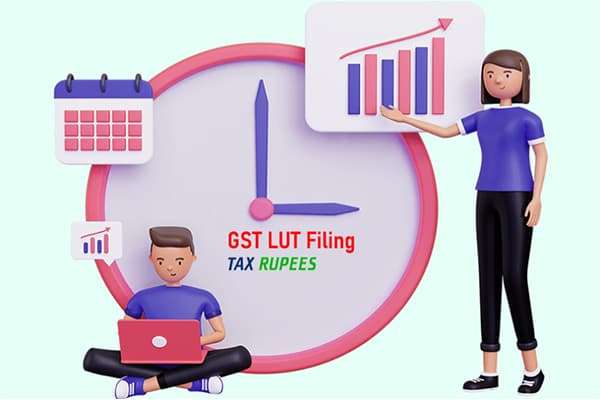The full form of LUT is Letter of Undertaking, and it plays a crucial role in the Goods and Services Tax (GST) framework. It is a key document that enables exporters to carry out the export of goods or services without having to pay Integrated GST (IGST) upfront. By submitting an LUT, eligible businesses can enjoy smoother export operations while maintaining better cash flow, as it eliminates the need for immediate tax payments on zero-rated supplies.
LUT Filing & GST Refunds
LUT Filing & GST Refunds
LUT Filing & GST Refunds are important compliance and financial relief mechanisms under the Goods and Services Tax (GST) regime, especially for exporters and businesses dealing in zero-rated supplies. LUT Filing (Letter of Undertaking) is a declaration that allows exporters to supply goods or services without the payment of Integrated GST (IGST). By filing an LUT, eligible taxpayers can export without upfront tax payment, thus improving liquidity and cash flow. LUT must be filed at the beginning of each financial year on the GST portal and is available to businesses that have not been prosecuted for any serious tax offenses in the past. GST Refunds apply in various scenarios, such as excess tax paid, unutilized input tax credit (especially in cases of inverted duty structure or zero-rated supplies), and IGST paid on exports.

Filing of LUT in GST for Exporters
Are you an exporter aiming to streamline your operations? The GST LUT (Letter of Undertaking) is a vital document that allows you to export goods or services without the upfront payment of Integrated GST (IGST). By filing an LUT, you can ensure hassle-free exports while preserving your cash flow. At Stride Tax, we’re here to simplify the LUT filing process for you, ensuring quick, accurate, and compliant submissions—so you can focus on growing your export business with confidence. Let us help make your export journey more efficient and stress-free.
What is LUT in GST?
GST LUT Form for Exporters
All registered taxpayers involved in the export of goods or services are required to submit a Letter of Undertaking (LUT) through Form GST RFD-11 on the GST portal. This mandatory filing allows exporters to carry out their transactions without the need to pay Integrated GST (IGST) at the time of export. It is a crucial step to enable tax-free exports under the GST regime.
Eligibility Criteria for LUT registration
To be eligible for obtaining a Letter of Undertaking (LUT) under GST, the following criteria must be met:
Registered Taxpayer: The applicant must be a registered taxpayer under the GST system and engaged in the export of goods or services.
No Serious Tax Offenses: Taxpayers who have been prosecuted for tax evasion involving an amount exceeding ₹250 lakh are not eligible to file an LUT.
Intention to Supply: The applicant should have the intent to supply goods or services either domestically, to Special Economic Zones (SEZs), or to international destinations.
Zero-Rated Supply Without Tax Payment: The LUT is intended for those who wish to export without paying Integrated GST (IGST) at the time of supply. This is a key requirement for availing the benefits of an LUT.
Documents required for LUT under GST
To apply for a Letter of Undertaking (LUT) under GST, the following documents are typically required:
LUT Cover Letter: A formal request letter signed by the authorized signatory on the company’s letterhead.
Eligibility Confirmation: Ensure the applicant meets the eligibility criteria, including no history of major tax evasion.
GST Registration Certificate: A copy confirming the entity’s registration under GST.
PAN Card of the Business Entity: Serves as official identification for the applicant organization.
KYC Documents of Authorized Signatory: Includes valid ID and address proof of the person signing the application.
Form GST RFD-11: The official form used to apply for LUT.
Import Export Code (IEC): Required if the applicant is engaged in export activities.
Cancelled Cheque: From the company’s registered bank account, to verify banking details.
Authorization Letter: Document authorizing the individual who will sign and submit the application on behalf of the business.
